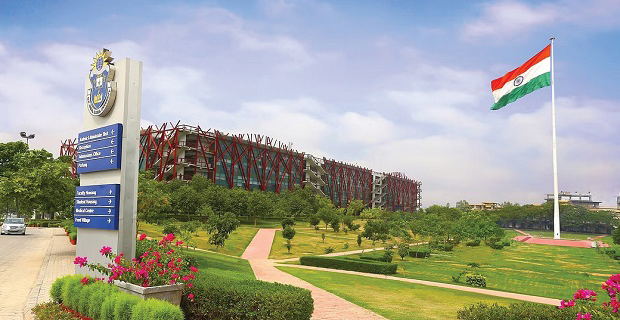US JURISTS AT JINDAL GLOBAL LAW SCHOOL
Sonipat: Jindal Global Law School of O.P. Jindal Global University organised the judicial colloquium, ‘Role of Judiciary in Sustaining Rule of Law and Democracy: Comparatives Perspectives, India and US’ where JGU welcomed 10 eminent Judges and Jurists from the US who also embarked on a multi-city tour to understand the legal framework and jurisprudence in India.
They included Justice Michael Wilson, Former Judge, Supreme Court of Hawaii; Justice Sabrina S. McKenna, Judge, Supreme Court of Hawaii; Justice Todd W. Eddins, Judge, Supreme Court of Hawaii; Justice Ann L. Aiken, Senior Judge, US District Court, District of Oregon; Justice Andre Birotte Jr., Judge, US District Court, Central District of California; Justice Sara L. Ellis, Judge US District Court, Northern District of Illinois; Justice Jenny Rivera, Associate Judge, New York State Court of Appeals; Justice Douglas L. Tookey, Judge Oregon Court of Appeals; Justice Josephine L. Staton, Judge, US District Court, Central District of California; Camille Nelson, Dean, William S. Richardson School of Law, University of Hawaii.
The colloquium largely focused on the role of the judiciary in balancing the will of the people when the state fails to respect the same. In particular, the colloquium focused on reorienting the constitutional discourse to a will-centric, people-centric approach and the role of judiciary in the wake of rising notions of “popular constitutionalism”.
Commenting on the colloquium, Prof. C. Raj Kumar, Founding Vice Chancellor, O.P. Jindal Global University and Founding Dean, Jindal Global Law School said, “This is an unprecedented opportunity to bring 10 eminent jurists from the US to India, and to have them engage with us and understand each other better. It’s also important for us to recognise the role of vibrant constitutional democracies such as India and the US in advancing the cause of the rule of law.
“Our larger objective is to understand the rule of law and sustain our democratic institutions. The vision of this initiative is also for judges from the US to get an understanding of India, India’s complex legal system, India’s democracy and our deep commitment towards strengthening those values of democracy and constitutionalism.
“The Indian judiciary is among the most independent autonomous institutions in the world. It began at a very relatively conservative court in 1947. But in its evolution, it has become one of the most progressive courts in the world. India has had a very progressive Supreme Court and high courts where we constantly draw upon jurisprudence from other parts of the world, including the US, the UK, European Union, and of course, more recently from South Africa and other parts of the world.











Comments.